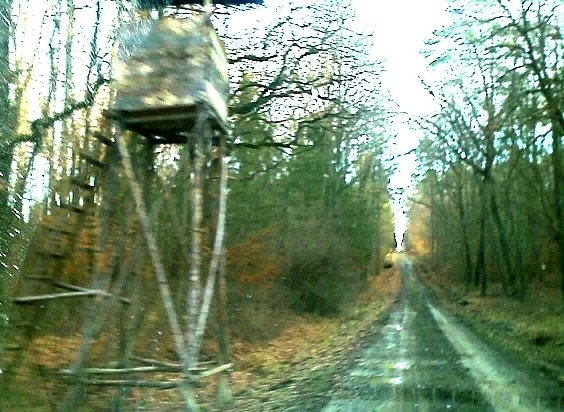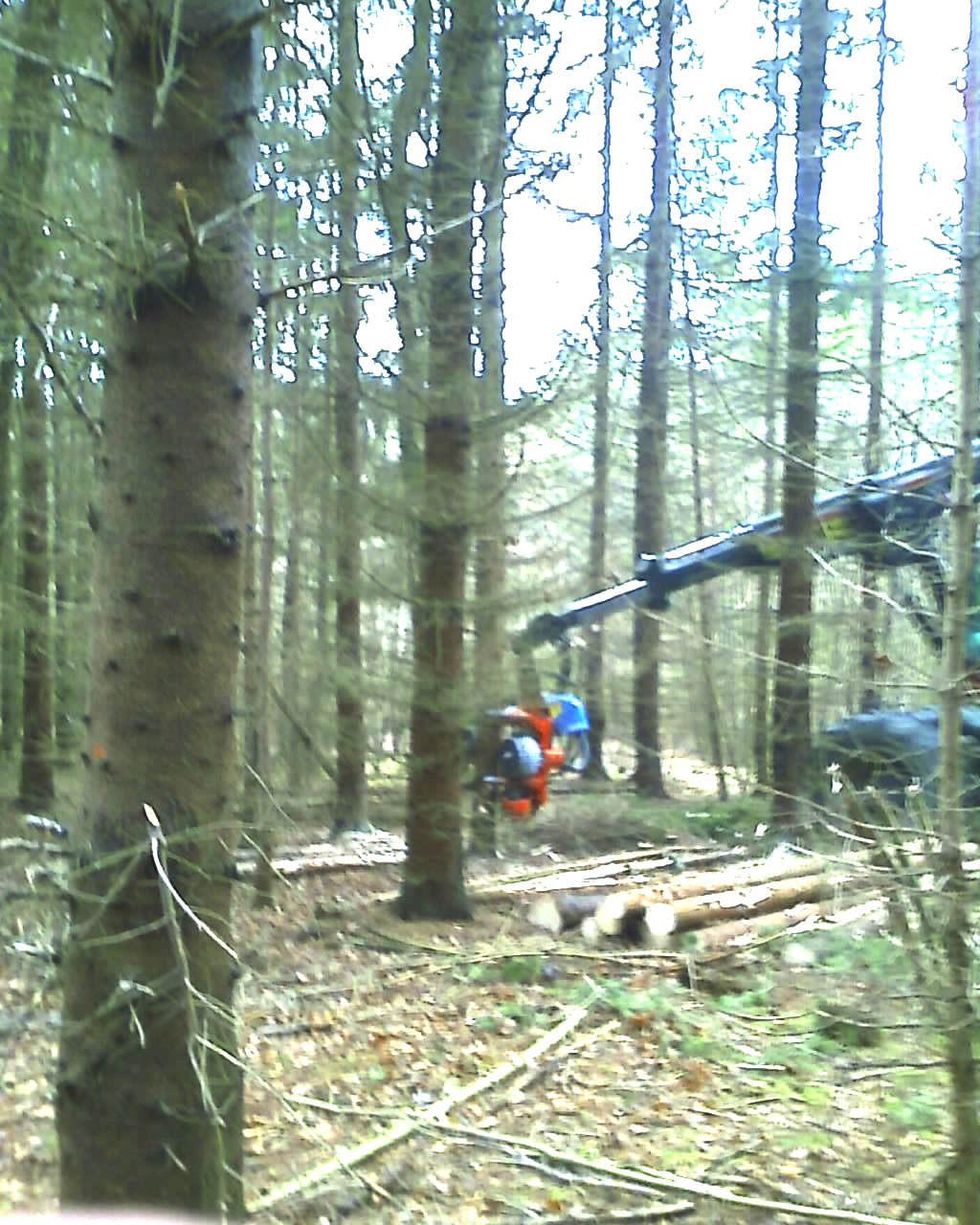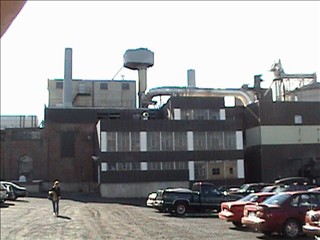Forestry
There's more to this profession than just growing, then
harvesting trees for money. Owning and managing
forests is a job with special benefits.
 People buy, or continue owning wooded land for
differing, and personal reasons. The old term,
my forest is under multiple-use management says it. Along with the
growing trees, those acres also bring wildlife, relaxation,
exercise and natural beauty for all to see. And public
good too, as watersheds and more.
People buy, or continue owning wooded land for
differing, and personal reasons. The old term,
my forest is under multiple-use management says it. Along with the
growing trees, those acres also bring wildlife, relaxation,
exercise and natural beauty for all to see. And public
good too, as watersheds and more. The business aspects do matter, because owning carries along expenses of ownership, like insurance and taxes. Access roads and and boundary lines need to be maintained. Forest management, in the financial sense - sustainably lets the growing forest pay for its own upkeep, with some profit besides. Money can come in, for example, from timber sales, hunting access fees, special crops like Christmas trees, short term recreational leases and subsurface mineral leases which do not allow surface disturbance.
Tree cutting is the tool for improving and protecting forests
 Thinning or
salvage is planned logging that removes smaller or poor
quality trees, eliminating those with insect or disease
pests and improving growth conditions in the residual
stand.
Thinning or
salvage is planned logging that removes smaller or poor
quality trees, eliminating those with insect or disease
pests and improving growth conditions in the residual
stand. The owner's choices matter here; small game hunters frequently keep species of trees and shrubs that offer shelter and food for wildlife.
Logging crews need companies to buy low-grade logs, poletimber and chips they produce.
The forestry activity is often called a low-grade sale; generating mostly low value commodity, or bulk sale, products. The improvement in forest condition is the benefit most owners expect. Most also want some cash payment, but frequently logging costs, together with freight expense to distant buyers leaves little or no cash income for to the landowner.
Low-grade sales can generate more revenue with higher value AND local markets
There is meaning behind the double emphasis. Freight distance is key to the owner's value of standing trees. Whether the product shipped is poletimber or chips, trucking costs vary little over the first 20 miles, but for longer distances the expense goes up with mileage.
The most reliable buyers of wood chips or roundwood traditionally have been large plants that depend on logging crews working up to 150 miles away. As an estimate, at that distance the per-load revenue will drop by $300 or more, about $12-14 for each delivered ton of the product. Mill wood buyers may apply zone-pricing to make up the difference for the wood producer when the mill needs to increase the number of deliveries, but under normal times they prefer to "stay in closer" to save money. Logging crews go out of business when they cannot sell some wood profitably every week.
A local demand for low-use wood exists today, without a business to serve it.
The heat supply market has
not interested American foresters and wood producers so far,
but opportunities await the timber industry as more  people
ask for heat and cooling from renewable energy
sources.
Wood-to-heat facilities like the college campus boiler plant
(right) use less wood per hour than big mills, but they can
afford to pay similar prices for wood chips of the same
acceptable quality as the mill, but they can be much closer
to the job.
people
ask for heat and cooling from renewable energy
sources.
Wood-to-heat facilities like the college campus boiler plant
(right) use less wood per hour than big mills, but they can
afford to pay similar prices for wood chips of the same
acceptable quality as the mill, but they can be much closer
to the job.
Selling
(pick a number, say 2) loads per week, every week to the
local outlet, means each crew has another dependable
source of income to cover logging equipment, manpower and
profit, while also paying reasonable return to the forest owner on his tree-farm
investments. Today, wherever you are in America, the
potential to develop new, well designed heat-from-wood chip
facilities is almost limitless.
The missing factor has been
people and the business in the middle. Wood producers,
forest owners or managers with the low-grade timber, who
know timber production AND make an effort learn the fairly
simple business of heat energy supply contracting.
Better still, they partner with neighbors in their community
for the purpose.
Where is the money coming from?
 Well managed businesses can provide complete,
quality service at a profit based on the difference
between value of wood chips in the truck,
and the corresponding value of the heat
generated from it.
Well managed businesses can provide complete,
quality service at a profit based on the difference
between value of wood chips in the truck,
and the corresponding value of the heat
generated from it.
Customers want comfort, not
chips, fuel oil or any other fuel. Selling them that comfort
(heat) using a renewable energy source is the service. Value
is added to wood chips only when the new heat supply
contracting business begins operating.
Keeping occupants comfortable and supplied with service hot
water requires a the same quantity of heat energy with
either fuel type. Wood chips can do the same job for
less money. Facility operators benefit in other ways
by contracting for heat, and for that reason, they can be
willing to pay nearly the same as if they were using the
conventional source. For perspective,
consider this example with recent energy cost data for a 50
unit apartment complex in Pennsylvania. The
bottom(green) row figures are the estimated fuel energy cost
of hot water used (only) for showers by tenants over a
single 3-hour period.
So why don't managers of hotels, laundries,
apartment complexes or swimming pools do it
themselves?
A
simple but very understandable answer:
Their attention is on
satisfying customers, as is yours. Hotel staff
people are hired to help guests, not service heat
pumps or boilers.
Even today, American biomass heating equipment companies sell and install the units, then expect the new owner to learn and follow the directions and manage fuel supply, two areas they don't know, or care to learn. It does require some staff time. Wood chip or pellet heat systems take more attention than the gas, oil or electrical units that the owners already know and trust. Management will not risk complaints about heat, cooling or cold showers.
Today's biomass heating
(biothermal) equipment does work well when installed and
operated as designed. The business develops as a
service, giving customers clean renewable energy they want
and can promote, in ways that eliminate their sense of perceived
risk. Managers of hotels and other good
candidate buildings can be quite willing to contract for the
service with a qualified company when the terms are
right.
Why team with RPG?
Land owners, foresters and
wood producers need new markets for low-grade timber and
urban green woody biomass. We offer assistance in
market development across all types of timber. With
income from these new businesses, the industry can
continue using good practices to benefit the entire forest
community and still generate a profit. Our experience
includes buying and selling timber, chips and hogged fuel,
and also in building energy use, efficiency and renewable
fuel applications.

 Member:
Member:
Society of American Foresters
Forest Guild
PA Council of Professional Foresters
NC Forestry Association
PA Forest Products Association
 2018-Oct. 13
2018-Oct. 13